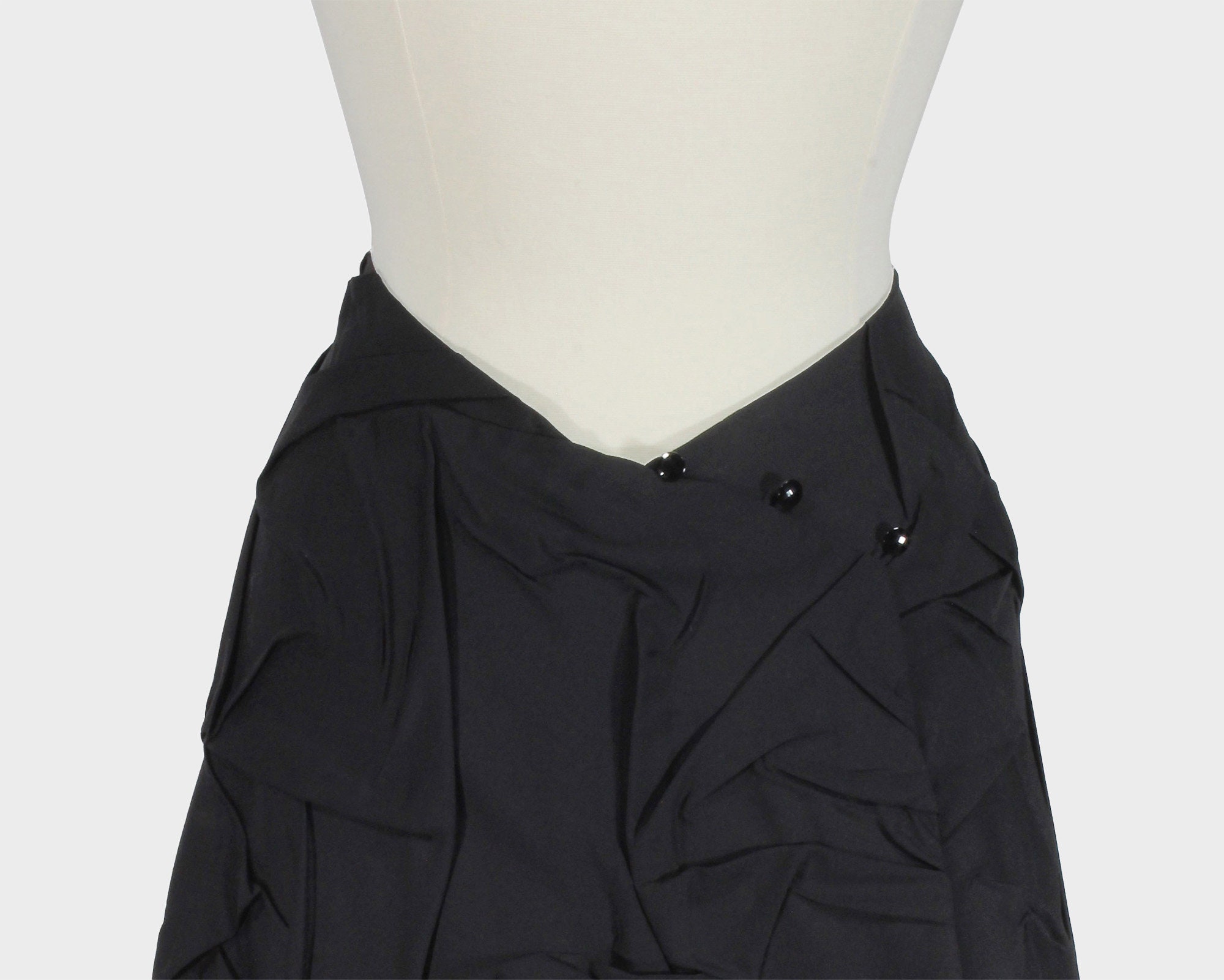Unpacking The Yumi Eto Leak: A Closer Look At Privacy, Ethics, And What It Means For Us All
Let’s face it—news about the so-called "Yumi Eto leak" has been buzzing all over the internet, sparking conversations and debates on social media platforms. This isn’t just another scandal; it’s a wake-up call about the importance of respecting privacy and understanding the legal consequences of unauthorized content sharing. As we dive into this topic, let’s explore what really happened and why it matters to all of us in today’s digital world.
In an era where everything seems to be just a click away, the spread of leaked content has become a serious concern. The Yumi Eto leak controversy brings to light some critical issues—how do we protect personal boundaries? What happens when private information gets shared without consent? This article aims to break down the situation, offering a deeper look at the legal, ethical, and emotional dimensions of this incident. We’ll also discuss steps you can take to stay safe online.
But here’s the thing—this isn’t just about one person or one event. It’s about all of us. By understanding the background, implications, and prevention strategies, we can all play a part in creating a safer digital space. So, buckle up, because we’re about to unpack this together.
Read also:Annette Bening A Hollywood Icons Journey Through Three Decades Of Stardom
Getting to Know the Yumi Eto Leak
Who’s Yumi Eto, Anyway?
Before we get into the nitty-gritty, let’s talk about Yumi Eto. She’s not just another name in the headlines—she’s a well-respected figure in the entertainment industry, known for her incredible talent and hard work. Whether it’s acting, producing, or inspiring others, Yumi has made a name for herself in the world of entertainment. But like many public figures, her private life has now become the subject of unwanted attention.
Biodata Table:
| Full Name | Yumi Eto |
|---|---|
| Occupation | Entertainer, Actress |
| Birth Date | January 15, 1990 |
| Nationality | Japanese |
The Incident: What Happened?
Now, let’s talk about the elephant in the room—the leak itself. The Yumi Eto leak refers to the unauthorized release of private content involving her. These kinds of incidents don’t just happen overnight—they’re the result of a series of events, often involving cybercriminals or even careless mistakes. This situation has not only dominated headlines but also sparked important discussions about privacy rights and cybersecurity.
Here’s what we know so far:
- Timeline of Events: How did it all unfold? From the initial breach to the widespread sharing, every step matters.
- Potential Sources: Who or what was behind the leak? Was it a hacker, an insider, or something else entirely?
- Impact on Yumi: How has this affected her personally and professionally? The consequences go beyond just the headlines.
Breaking Down the Legal Stuff
When it comes to leaks like this, there’s more at play than just gossip. We’re talking about serious legal violations. Unauthorized distribution of private content isn’t just unethical—it’s illegal. Laws are in place to protect people’s privacy, and they’re there for a reason. Let’s take a closer look at how these laws apply to situations like the Yumi Eto leak.
Key Laws to Know
Whether you’re in the U.S., Europe, or anywhere else, there are laws designed to safeguard personal information. For example, the Computer Fraud and Abuse Act in the U.S. and the General Data Protection Regulation (GDPR) in Europe both emphasize the importance of protecting people’s data. If someone violates these laws, they could face serious penalties.
Read also:Hotblockchain Leaked What Happened And Why It Matters
Here are a few key legal considerations:
- Intellectual Property Rights: Who owns the content, and how does that affect what can or can’t be shared?
- Privacy Invasion Laws: What happens when someone invades another person’s privacy without permission?
- Cybersecurity Regulations: How do these rules help prevent future breaches?
How Technology Can Help (or Hurt)
Let’s be real—technology is a double-edged sword. On one hand, it offers incredible tools to protect our data. On the other, it can make us vulnerable if we’re not careful. The good news is that there are ways to strengthen your defenses and reduce the risk of leaks.
Top Tips for Data Security
If you want to avoid being the next victim, here’s what you need to do:
- Strong Passwords: Use unique, complex passwords for all your accounts. No more “password123.”
- Two-Factor Authentication (2FA): This extra layer of security can make a huge difference.
- Regular Updates: Keep your software and security systems up to date. Outdated tech is like leaving the front door unlocked.
The Emotional Fallout
While the legal and technical aspects are important, we can’t ignore the human side of this story. Leaks like this can have a devastating impact on the victims, affecting their mental health and overall well-being. Yumi Eto’s experience highlights the need for support systems and resources to help those who’ve been affected.
Where Can Victims Turn for Help?
Thankfully, there are organizations and initiatives out there that offer support:
- Counseling Services: Professional help to process the emotional toll of a privacy breach.
- Legal Assistance Programs: Guidance on navigating the legal system and seeking justice.
- Online Communities: Peer support from others who’ve been through similar situations.
Social Media: Friend or Foe?
Social media platforms play a massive role in how leaked content spreads. Within minutes, a single post can go viral, reaching millions of people. But these platforms also have a responsibility to manage the situation responsibly. Let’s explore how they’re handling it.
Platform Policies You Should Know
Big names like Facebook, Twitter, and Instagram have policies in place to address unauthorized content. Here’s what they’re doing:
- Content Moderation Guidelines: Rules that dictate what can and can’t be shared.
- User Reporting Mechanisms: Tools that allow users to flag inappropriate content.
- Collaboration with Law Enforcement: Working together to stop the spread of harmful material.
Thinking Ethically About Sharing
When it comes to leaks, it’s not just about the law—it’s about doing the right thing. Sharing private content without consent raises serious ethical questions. Are we respecting people’s rights? Are we contributing to a culture that values privacy? These are conversations we need to have.
Why Privacy Matters
Ethical guidelines remind us that privacy is a fundamental right. Whether it’s a text message, a photo, or a video, we need to respect others’ wishes before sharing anything. This principle applies to everything we do online.
Public Reaction: What Are People Saying?
The Yumi Eto leak has sparked a wide range of reactions from the public and the media. Some are outraged, others are sympathetic, and many are calling for change. By analyzing these responses, we can better understand how society views privacy and accountability in the digital age.
Common Themes in Public Sentiment
Here’s what people are saying:
- Outrage Over Privacy Violations: Many are angry that someone’s private life was exposed without their consent.
- Concerns About the Impact on Victims: There’s a growing awareness of the emotional toll these incidents can take.
- Calls for Stricter Regulations: People want to see stronger laws and enforcement to prevent future breaches.
Staying Safe in a Digital World
So, what can you do to protect yourself? Education and awareness are key. By taking proactive steps, you can reduce your risk of becoming a victim. Here’s how:
Your Guide to Safeguarding Personal Data
Here are some effective strategies:
- Encryption Tools: Use them to secure sensitive communications.
- Limit Sharing: Be mindful of how much personal information you post online.
- Monitor Accounts: Keep an eye out for any suspicious activity.
Final Thoughts: Let’s Make a Change
As we wrap up, it’s clear that the Yumi Eto leak is more than just a story—it’s a call to action. We all have a role to play in addressing privacy violations and creating a safer online environment. By understanding the legal, ethical, and technological aspects of these incidents, we can work together to make a difference.
Here’s what you can do:
- Spread Awareness: Share this article to help others understand the importance of privacy.
- Start Conversations: Talk about digital ethics and accountability with friends, family, and colleagues.
- Explore Resources: Look into tools and tips for protecting your personal data.
Table of Contents:
Article Recommendations

